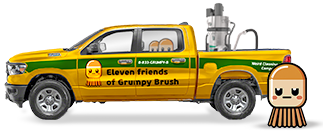The Surprising History of House Cleaning: How Our Chores Have Evolved Through the Ages
Cleaning Tricks 5-7 minutes reading 4.5 by Liz RianAncient Times: Resourceful Beginnings
In ancient Egypt, one of the first civilizations to develop organized cleaning methods, cleanliness was tied to both health and spirituality. Egyptians used minerals, water, and oils to scrub down surfaces, crafting basic but effective cleaning solutions. Ash from burnt plants mixed with water created a rudimentary form of soap—showing that even without modern products, ancient people were resourceful.
As civilization advanced to the Roman era, cleanliness became a social ritual, especially in public spaces. Roman bathhouses served as communal gathering spots, where people cleaned themselves with a tool called a strigil—a metal scraper used to remove dirt and oil from the skin. While it might sound a bit harsh, this tool was a forerunner to modern exfoliants, hinting at our long-standing appreciation for self-care through cleanliness.
The Middle Ages and the Victorian Era: From Dusty to Dedicated
But by the Victorian era, things took a sharp turn. Cleanliness was seen as a mark of moral virtue, tied to character and responsibility. Victorians developed elaborate cleaning routines, turning housekeeping into a full-time activity. For instance, they used bread crumbs to dust wallpaper—a method that seems odd today but was taken seriously then. Cleaning was no longer just about staying healthy; it was a social duty.
The Rise of Modern Cleaning Gadgets: Enter Convenience
By the 1950s, chemical cleaners flooded the market, and advertisements promoted a specialized cleaner for every surface in the house. Bleach, ammonia, and other potent cleaners became household staples, simplifying tasks that once took hours. This era marked the beginning of convenience cleaning, with efficiency and speed at the forefront.
Today’s Eco-Friendly Era: Cleaning with a Conscience
Modern times have brought yet another shift, as people look for ways to clean that are gentle on the environment. Many are returning to natural ingredients like vinegar, baking soda, and essential oils to avoid harsh chemicals. These natural cleaners are safe, effective, and align with a growing eco-conscious mindset.
Social media has also influenced today’s cleaning culture, with viral hacks that make household chores easier and faster. From putting a lemon in the microwave to freshen it up to using baking soda as a deodorizer, these tips are redefining how we approach cleaning. Many people are also embracing minimalism—less clutter means less to clean, after all! Today, cleaning is as much about mindfulness and sustainability as it is about tidiness.
In Closing
House cleaning has come a long way from ancient ash soaps and bread-crumbed wallpaper to eco-friendly all-purpose sprays. As we clean our homes today, we’re part of a long history that blends practicality with a touch of culture and character.
So, the next time you pick up a sponge or run the vacuum, remember: you’re part of a fascinating tradition that has evolved through time. And if you’re looking for more fun cleaning insights, stay tuned! In the next article, we’ll be busting some common cleaning myths, like whether vinegar and baking soda really can tackle any mess.
Happy cleaning!
Why It's Better to Entrust Cleaning to Eleventh Friends of Grumpy Brush?




